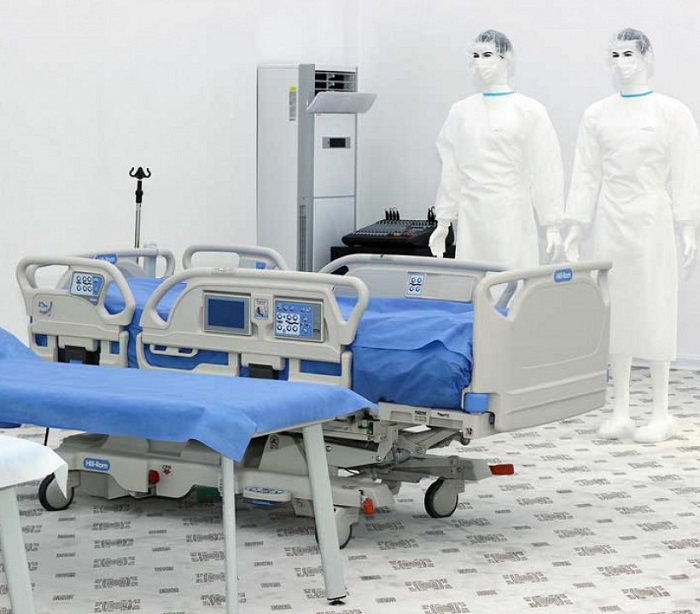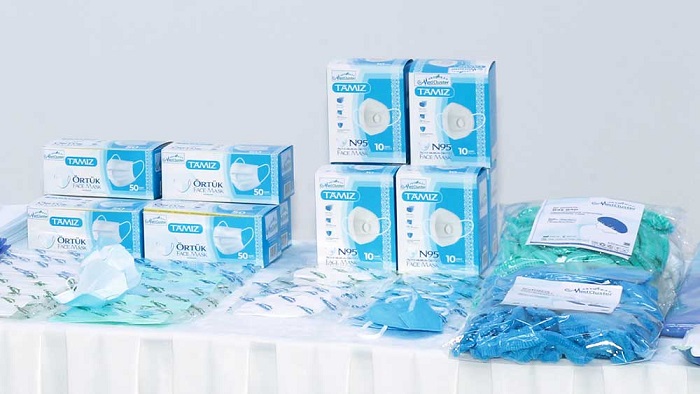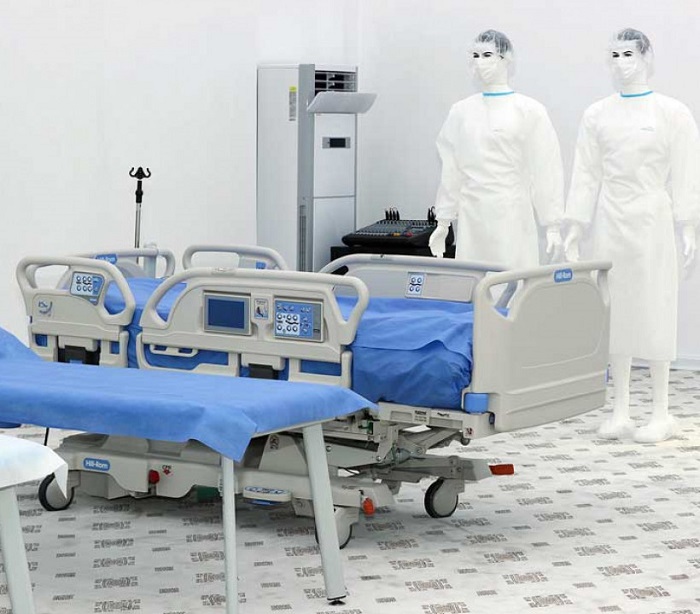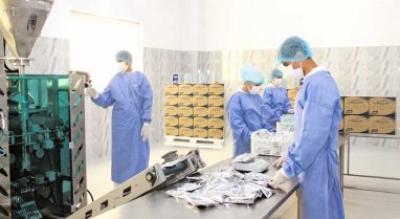Medical Cluster in Arkadag city to Meet Turkmenistan's Domestic Demand for Medical Supplies

As part of the construction of the second phase of the "smart" city of Arkadag in Turkmenistan, a powerful medical cluster is being created. By using local raw materials, this cluster will fully meet the domestic demand for everyday medical products. Moreover, the medical cluster is becoming a platform for the large-scale production of innovations developed by Turkmen scientists, aiming at industrial diversification and the production of high-value-added goods.
In an interview with the newspaper Neutral Turkmenistan, Deryageldy Orazov, the Chairman of the State Committee for the Construction of the City of Arkadag under the President of Turkmenistan, shared more details about the cluster’s activities.
Meeting Domestic Demand
Turkmen polypropylene and the non-woven fabric produced from it are high-quality products that neighboring countries purchase with stable profit.
The organization Arkadag Medisina Klasteri Menejment, established under the Charitable Fund for Assisting Children in Need of Guardianship, named after Gurbanguly Berdimuhamedov, currently operates as an engineering company.

From state-supplied polypropylene, the Arkadag medical cluster manufactures non-woven material used to produce disposable gowns, sheets, three-layer masks, protective suits, and more for the healthcare sector. The medical cluster covers an area of approximately 100 hectares.
The goods produced in the country's enterprises do not fully meet the domestic demand. However, the medical cluster, in collaboration with the Union of Industrialists and Entrepreneurs, can cover this demand within a few months.

"They are currently capable of producing only 100,000 gowns, while the national healthcare system requires around a million. We can now cover this gap," Orazov clarified.
International Experience
Orazov discussed a visit to South Korea last year, where the Turkmen delegation met with representatives of BS Medical and visited a factory where trial production of syringes made from Turkmen polypropylene, with certain additives, took place. The quality of the produced syringes was noted as high.
Turkmenistan also collaborates with German companies, which are developing a formula for Turkmen polypropylene. In Germany, they will produce synthetic wadding (syntepon) that meets European standards and immediately sell it.
In addition, Turkmenistan plans to manufacture other products, such as meltblown fabric (used for baby diapers and other hygiene products), at German enterprises.
Certification required for global market operations is also underway. For instance, the Turkmenbashi Complex of Oil Refineries is certifying its production facility according to international standards. Two ISO certificates have already been obtained, with procedures for two more in progress. A trademark sketch has been developed and registered.
Turkmen Scientists Develop New Medical Salt Production Method
"Another important detail is increasing the profitability of existing enterprises by implementing scientific developments, such as the saline solution produced at the Tenekär enterprise. For its production, Turkmen water sources and medical salt are used," Orazov noted.
Scientists and specialists from the Oguz Khan Engineering and Technology University and the Technology Center of the Academy of Sciences of Turkmenistan have developed a new method for producing medical salt, which will be among the best in quality.
Currently, laboratory studies are being finalized, and a pilot project will soon be launched on an industrial scale.
Medical Cluster Aims for Production Expansion
Turkmenistan also exports non-woven materials to Central Asian countries and Azerbaijan.
In the future, the medical cluster plans to produce various goods from local raw materials, including baby food, diapers, and products from medicinal plants.

